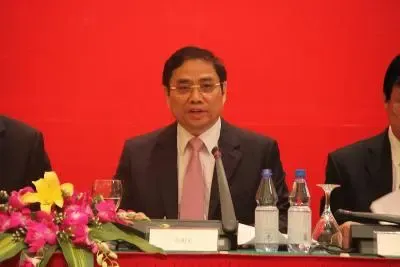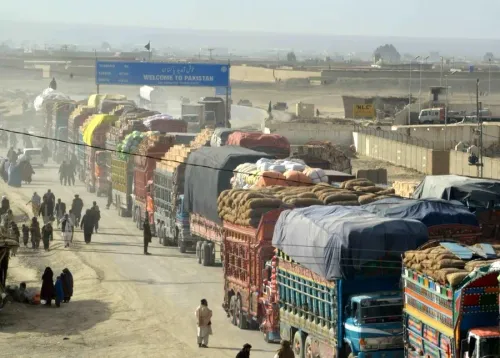Will Vietnamese PM Achieve 3,000 km of Expressways by 2025?

Synopsis
Key Takeaways
- 3,000 km of expressways targeted for completion by 2025
- Infrastructure is crucial for economic growth
- New governance model reduces provincial units to 34
- First free trade zone established in Da Nang
- Strategic mergers aim for a more efficient administration
Hanoi, July 31 (NationPress) Prime Minister Pham Minh Chinh reiterated the government's commitment to achieve the completion of 3,000 kilometers of expressways across the nation by the conclusion of 2025, as reported by Vietnam News Agency.
During the 19th meeting of the State Steering Committee for Key National Transport Projects, Chinh emphasized the critical role of infrastructure in enhancing economic development and regional connectivity, according to Xinhua News Agency.
He urged ministries, agencies, and local governments to expedite progress, tackle challenges head-on, and take decisive actions to fulfill the expressway goal under the national 500-day emulation campaign.
Additionally, Chinh called upon local authorities to address issues related to site clearance, the availability of construction materials, and streamline administrative procedures to ensure effective project execution and support the nation's socio-economic objectives for 2025.
Earlier, on June 30, localities in Vietnam celebrated the announcement of provincial mergers and the initiation of a new two-tier local governance model, as reported by Vietnam News Agency.
This new administrative structure now consists of 34 provincial-level units, comprising 28 provinces and six centrally governed cities, a reduction from the previous 63 units. The restructuring led to the elimination of district-level administrations starting July 1.
At the event in Ho Chi Minh City, General Secretary To Lam characterized the mergers as a “historic step” with significant strategic implications, marking a new phase in creating a streamlined and effective state apparatus.
This reform aims to establish a modern administration that is closer to the people and serves their interests.
In June, the Vietnamese government also sanctioned the creation of the country’s first free trade zone in Da Nang, as reported by VnExpress.
Spanning 1,881 hectares, this zone is anticipated to evolve into a major economic, logistics, and technological center within the Asia-Pacific region, ultimately serving as a vital link in global and regional supply chains.










